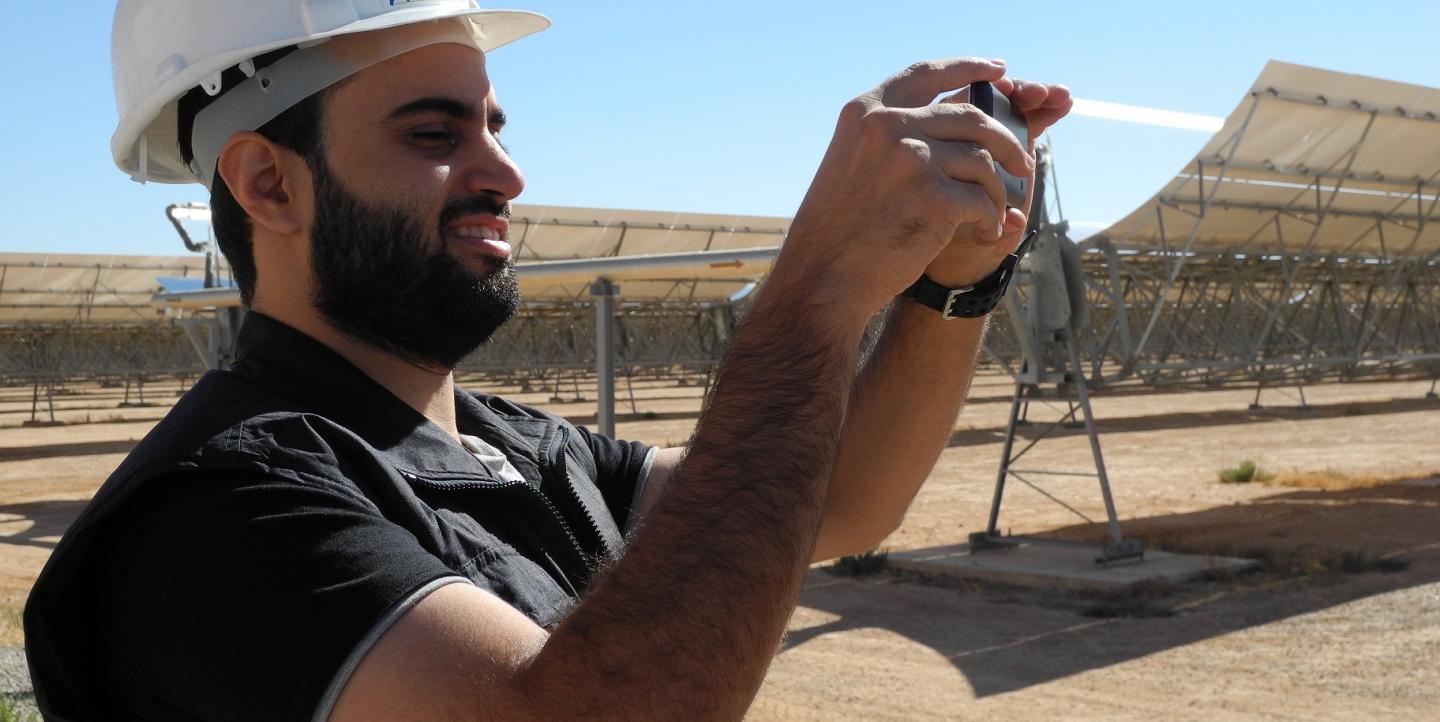Each month, IJNet features an international journalist who exemplifies the profession and has used the site to further his or her career. If you would like to be featured, email a short bio and a paragraph about how you have used IJNet here.
This month we feature Egyptian journalist and translator Mustafa Mahmoud, world news editor for the Egyptian daily Al Gomhuria. Previously, he served as a radio operator for the African Union-United Nations Hybrid Peacekeeping Operation in Darfur. Last year, he was a judge in ICFJ’s Story Contest for Best Coverage of Vaccines and a Dii Fellow, which enabled him to visit the 4th Dii Desert Energy Conference in Rabat. He is a BBC Media Action Connection in Egypt.
Next month, Mahmoud will intern at the Sunlight Foundation in Washington, D.C. (an opportunity he learned about through IJNet), where he'll focus on government corruption, press freedom, media sustainability and cutting-edge digital tools. “The more I learn, the more I want to quench my thirst for knowledge,” he says.
How has IJNet helped you?
Since I’ve come to know IJNet, it has been a great source of information for me. I won grants from the BBC, Ford Foundation, Dii and more thanks to the opportunities posted on IJNet. I’ve also learned about many digital tools for journalists through the IJNet website. It provides very useful tips and tricks for hunting for opportunities or mastering a certain skill, and it gives a jump-start to any journalist in pursuit of professional success. In short, IJNet is the cornerstone of my pool of resources.
You’ve had a diverse career, with experiences beyond journalism. How have these experiences contributed to your work?
Shortly after my graduation in 2008, I was conscripted by the [Egyptian] army where I was deployed to Darfur for a 12-month assignment with the UNAMID [United Nations Mission in Darfur] peacekeeping mission. I was in constant contact with local residents and IDPs [internally displaced persons] on whose faces a harsh type of life took its toll. Certainly, this helped humanize the story.
In Darfur, I delivered humanitarian aid to the impoverished. Once, I was standing on a UNAMID pickup truck bed throwing packets of cookies, milk, juice, etc. into the air above the starving large crowd coming from a nearby village. I thought to myself: "Cookies seem to be a matter of life or death to them, while packets of it are thrown away heedlessly in our modern and educated societies. That is a waste of bounty." This experience in particular reshaped my mentality as a human being. For me, cookies are now a metaphor for wasted resources like wind, sun, water and even garbage, on which I wrote a number of stories for Al-Gomhuria newspaper.
Being a translator also has a direct impact on my career as an editor. Most of my work in media is translating and editing pieces of news from world newswire services, written mainly in English. Translation involves a quality assurance process, which requires great attention for minute errors produced during draft versions. This helps develop a fine eye for meticulous details. Translation is also infamous for rigorous deadlines, which is good training for meeting deadlines on an urgent story or pitching an idea on a time crunch.
I have also had great colleagues who have helped me, like Mariam Sami, Rabie Abdul-Ghfar, Muhamed Fahmy and Noha Hamed.
What advice would you give aspiring journalists?
Stick to your senior editors and try to absorb what they’ve learned through their years of work. If you have an issue, ask them upfront. Write stories on diverse topics, but at the same time, be the hero of a certain beat. Be patient, every change is a process. Work outside of normal hours and don’t be monotonous.
Image of Mustafa Mahmoud courtesy of Noëlie Vegas: During a visit to the Ain Beni Mathar ISCC power plant, Morocco, November 2013.


